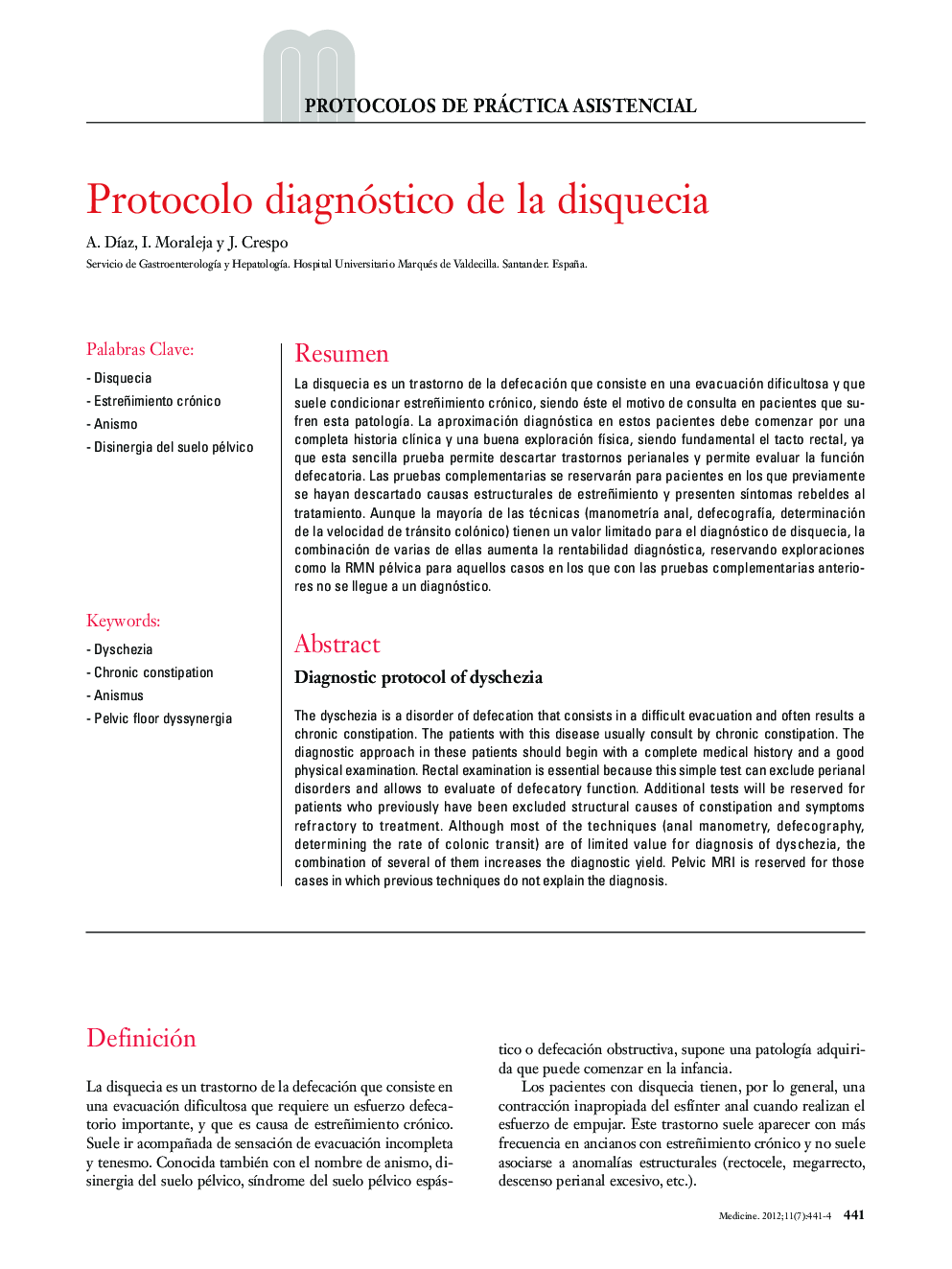| Article ID | Journal | Published Year | Pages | File Type |
|---|---|---|---|---|
| 3807710 | Medicine - Programa de Formación Médica Continuada Acreditado | 2012 | 4 Pages |
Abstract
The dyschezia is a disorder of defecation that consists in a difficult evacuation and often results a chronic constipation. The patients with this disease usually consult by chronic constipation. The diagnostic approach in these patients should begin with a complete medical history and a good physical examination. Rectal examination is essential because this simple test can exclude perianal disorders and allows to evaluate of defecatory function. Additional tests will be reserved for patients who previously have been excluded structural causes of constipation and symptoms refractory to treatment. Although most of the techniques (anal manometry, defecography, determining the rate of colonic transit) are of limited value for diagnosis of dyschezia, the combination of several of them increases the diagnostic yield. Pelvic MRI is reserved for those cases in which previous techniques do not explain the diagnosis.
Related Topics
Health Sciences
Medicine and Dentistry
Medicine and Dentistry (General)
Authors
A. DÃaz, I. Moraleja, J. Crespo,
